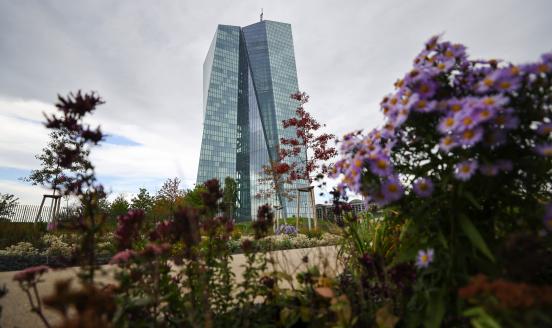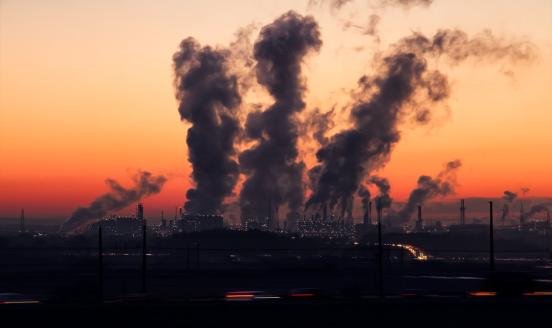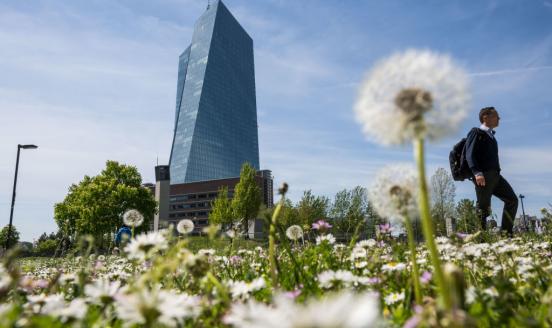A green recovery
Government policy faces various challenges. Before the COVID-19 outbreak, the European Union set ambitious targets to reduce carbon emissions. Now in

Governments have multiple goals including economic growth, social inclusion and environmental preservation (Schoenmaker, 2020). The COVID-19 pandemic has had a sharp negative impact on the economic and social fronts (deteriorating health, reduced income and job losses). By contrast, environmental performance is ironically improving, as carbon emissions and materials use decline because of reduced production and transport during the COVID-19 lockdowns. Nevertheless, the pre-crisis levels of environmental degradation are likely to return when the lockdowns are lifted and economic growth resumes.
But it doesn’t have to be this way. Governments, in particular in Europe with the Green Deal, have been working on the energy and circular transition in the medium term. By attaching green conditions when granting state aid and guarantees during the COVID-19 crisis, governments could push companies to accelerate the adoption of low-carbon and circular technologies after the crisis is over, and thus aim for a green recovery.
The European Commission (2020a) has temporarily lifted state-aid control rules to ensure that the disruptions caused by the COVID-19 pandemic do not undermine the economic viability of companies. State aid can take the form of wage subsidies, tax and social contributions relief, financial support, and loans and guarantees via banks. By limiting unnecessary company failures and job losses, the Commission aims rightly for a swift economic recovery after the COVID-19 pandemic is ended. Meanwhile, several countries have pledged large state-aid packages to steer companies through the COVID-19 crisis.
Green state aid
Both economic and environmental viability are important for companies’ survival in the long run. Green conditions for companies that receive state aid will change their business models. It will also affect market outcomes. To allow the smooth functioning of the internal market, we suggest therefore that the Commission designs and monitors green conditions as part of their temporary framework for state aid measures during the COVID-19 pandemic (European Commission, 2020a).
The green conditions can be based on the Green Deal targets to reduce carbon emissions in 2030 by at least 50% and in 2050 by 100% (ie carbon neutrality), compared with 1990 (European Commission, 2019). In addition, new targets are set for the design of sustainable products and circular production processes to reduce the use of virgin materials in the new Circular Economy Action Plan (European Commission, 2020b). When granting state aid, governments should require companies to implement these reduction targets for carbon emissions and materials usage in their business models after the crisis. In this way, state aid expenditures will not only promote the economic viability of companies, but also their environmental viability. This will accelerate the adoption of low-carbon and circular technologies.
Companies are struggling for survival and need to receive the state aid quickly. To reduce the upfront administrative burden, governments can choose to apply a light green test when granting the state aid, combined with a tougher green test ex post. If a company breaches the agreed green conditions, the state aid would have to be partly or fully repaid, depending on the severity of the breach. We also propose to target key sectors that are carbon- and material-intensive to keep bureaucracy to a minimum.
The following sectors have relatively high carbon and material footprints (Schoenmaker and Schramade, 2019):
- Transportation: road, air and water transport are predominantly fossil-fuel driven;
- Manufacturing: many manufacturers still employ energy- and material-intensive technologies;
- Construction: many builders still use non-recyclable and energy-intensive materials, such as cement;
- Energy: the shift from fossil-fuels to renewable energy is very gradual.
Examples
An earlier example of state aid with green conditions was the support for the American car industry during the Global Financial Crisis. President Obama (2009) granted large sums of state aid to General Motors on the condition that the company accelerated the development of an electric car. General Motors now has several electric cars in its range.
Current examples include state aid to the severely affected airline and travel industries. Airlines could be requested to speed up investment in carbon-efficient aircraft after the crisis, while airline manufacturers could be requested to speed up the development of such carbon-efficient and carbon-neutral aircraft. Travel companies, such as TUI, which received €1.8 billion in state aid from Germany, could be asked to reduce their carbon footprints by 50% by 2030. They can achieve such reductions by offering their clients more carbon-efficient air travel and greater usage of train travel.
Banks can set similar green conditions when extending loans to their borrowers in these sectors (with or without public guarantee) during the COVID-19 crisis. The underlying arguments are the same: economically and environmentally viable companies carry a lower credit risk. Leading banks already have experience with applying green lending criteria (Schoenmaker and Schramade, 2019).
From old to new sectors
Some high-carbon companies and sectors might find it difficult to adapt to the new low-carbon and circular environment. These companies or sectors (such as the fossil-fuel sector) are reminiscent of the European textile and shipping sectors in the 1990s. These sectors received state aid, which only delayed their disappearance. To avoid repeating these mistakes, governments should not provide state aid or guarantees to sectors that are economically or environmentally not viable in the medium term.
In these cases, governments must use their resources to retrain the workers. While the kneejerk reaction of governments is often to help the business that is in trouble and/or to protect the jobs involved, it is better to focus on helping the people – retraining and finding new employment – and changing the system. The Danish labour market, for example, is known for its high level of flexibility when hiring, social welfare system and active employment policies. Together, these three components constitute what is known as the ‘Flexicurity Model’ (Jespersen et al, 2008).
There is also a direct role for governments themselves in sectors that rely heavily on public investment and/or planning procedures, including the energy, transport and building sectors. Birol (2020) proposed to speed up the energy transition by putting clean energy jobs at the heart of stimulus packages. Other opportunities would be to expand public transit systems, including a European network of high-speed trains, and stimulating circular construction practices, which also require newly trained workers. Retraining efforts can also be (partly) directed to these areas.
To speed up recovery after the Global Financial Crisis, several countries shortened planning procedures to advance large building and infrastructure projects. Accordingly, governments can speed up the planning and execution of renewable energy projects (both power generation and distribution), public transport projects (replacing road and air travel) and circular building projects.
Governments are rightly compiling state aid packages to promote a swift recovery after the COVID-19 pandemic is ended. Our four recommendations to foster a green recovery are:
- Apply green conditions to state aid for companies in sectors with high carbon and/or material footprints;
- Apply similar green conditions to new and extended bank loans (with or without public guarantees) to these sectors;
- Refuse state aid for companies and sectors that are not able or willing to adopt low-carbon and circular technologies, and retrain their workers for new employment;
- Speed up planning procedures for renewable energy, public transit and circular building projects and infrastructures.
References
Birol, F. (2020), ‘How to make the economic recovery from coronavirus an environmentally sustainable one’, Prospect, 24 March.
European Commission (2019), ‘The European Green Deal’, Communication from the Commission to the European Parliament and the European Council, COM(2019) 640 final, Brussels.
European Commission (2020a), ‘Temporary Framework for State aid measures to support the economy in the current COVID-19 outbreak’, Communication from the Commission, COM(2020) 1863 final, Brussels.
European Commission (2020b), ‘A new Circular Economy Action Plan For a cleaner and more competitive Europe’, Communication from the Commission, COM(2020) 98 final, Brussels.
Jespersen, S., J. Munch, and L. Skipper (2008), ‘Costs and benefits of Danish active labour market programmes’, Labour Economics, 15(5): 859-884.
Obama, B. (2009), ‘Remarks by the President on the American Automotive Industry’, Transcript of Press Conference, 30 March, Washington DC. Available at: https://obamawhitehouse.archives.gov/the-press-office/remarks-president-american-automotive-industry-33009.
Schoenmaker, D. and W. Schramade (2019), Principles of Sustainable Finance, Oxford University Press, Oxford.
Schoenmaker, D. (2020), ‘The Caring Economy: Balancing Profit and Impact’, Working Paper. Available at: https://papers.ssrn.com/sol3/papers.cfm?abstract_id=3567026



